RIDGEFIELD — Dozens of community members, politicians and business leaders turned out to an all-day public hearing at the Clark County Events Center in Ridgefield on Tue., Oct. 25, to share their views on a proposed coal export terminal in Longview, Wash.
The local hearing was one of two held this week by the U.S. Army Corps of Engineers, who are taking public comment on a draft environmental impact statement (EIS) for the Millennium Bulk Terminals-Longview.
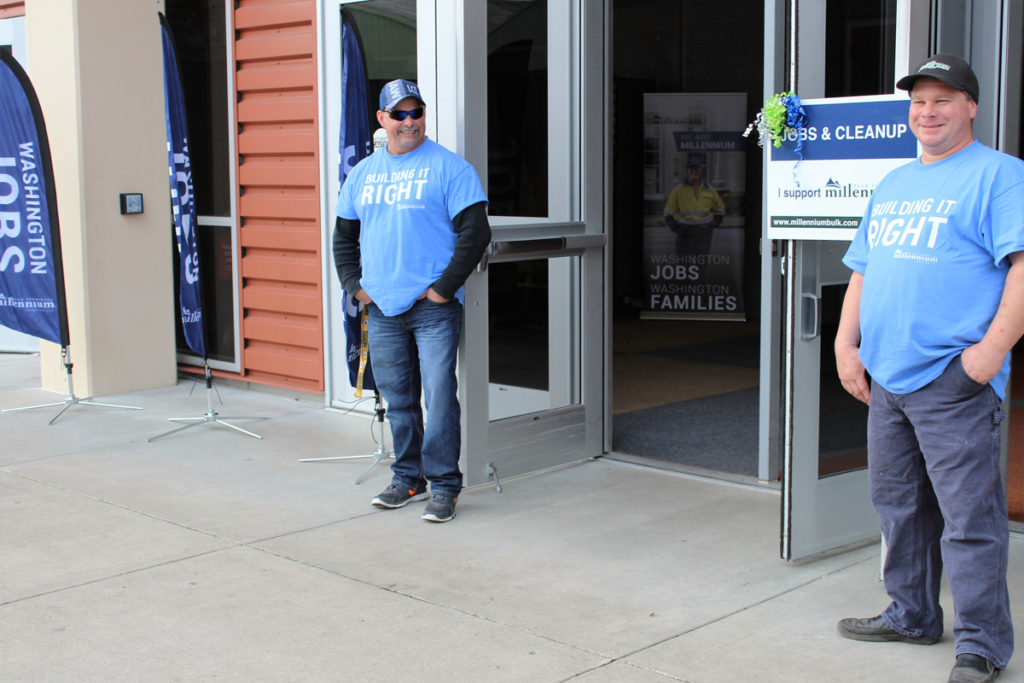
Many more people turned out for the first hearing, held Mon., Oct. 24, in Longview, said Jasmine Zimmer-Stucky, senior organizer for Columbia Riverkeeper, an environmental advocacy group that opposes the opening of the proposed coal terminal.
“We had a great turnout yesterday,” Zimmer-Stucky said of the Monday public hear
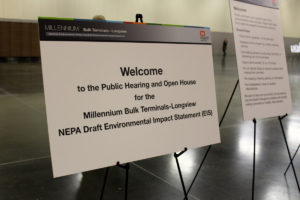
ing. “There was a steady stream of speakers at the Longview hearing.”
Most of the people who sat in the crowd at Tuesday’s hearing in Ridgefield wore blue, pro-Millennium shirts proclaiming, “Building it Right.” Some worked at the Longview site. Others had bused in from other regions, including a group of about 20 who came from the Portland region in nearby Oregon to lend their support.
“We’re here for the future of our children and families,” said Jeff Childers, a Millennium employee. “I’ve lived in Longview my whole life … and we need this.”
Opponents of the project say the coal terminal, if allowed to open, would cause significant environmental and human health hazards in Longview and in the dozens of communities — including Camas, Washougal and Vancouver — that sit along the rail line between the coal’s mining site in Montana and the terminal site in Longview.
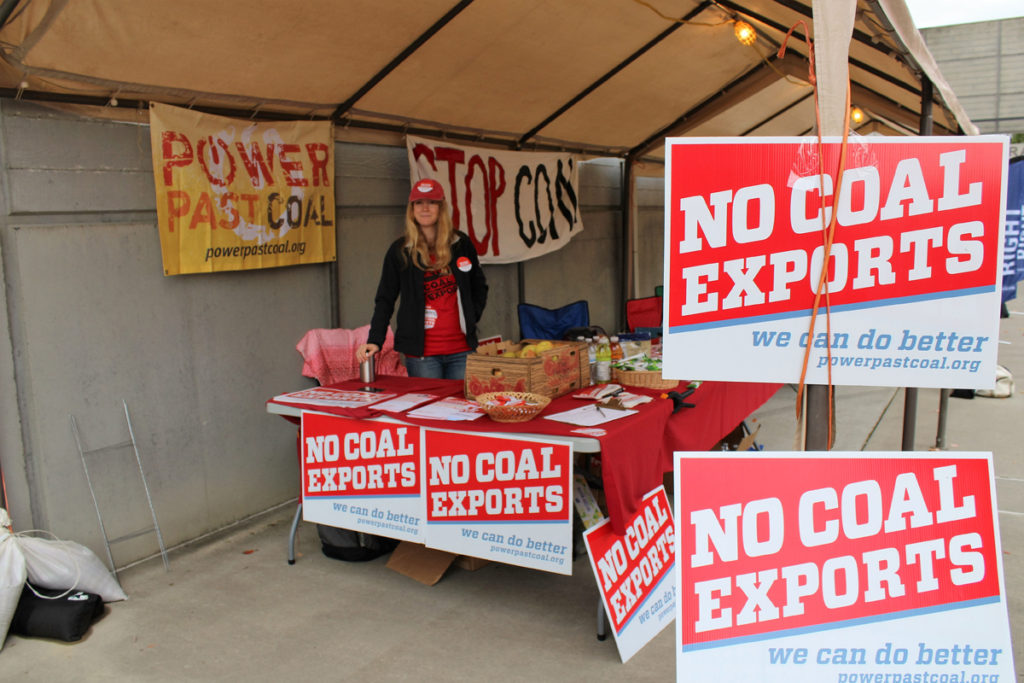
On Mon., Oct. 17, the Vancouver City Council passed a resolution formally opposing any project, including the Millennium Bulk Terminals, that increases the number of trains carrying crude oil or coal through the city of Vancouver. The majority of the Vancouver councilors expressed concerns about the additional rail traffic, which they said would exceed existing rail capacity in Vancouver, causing additional traffic congestion and delays. During peak production, the Longview coal terminal would send 16 train cars, each more than a mile long, through Vancouver each day. Half of the cars would be filled with coal coming from Montana and the other half would be empty but would, some Vancouver councilors fear, still pollute the area with coal dust.
Supporters of the project, however, say the health and environmental fears are unfounded and point to state and federal reports that say as much.
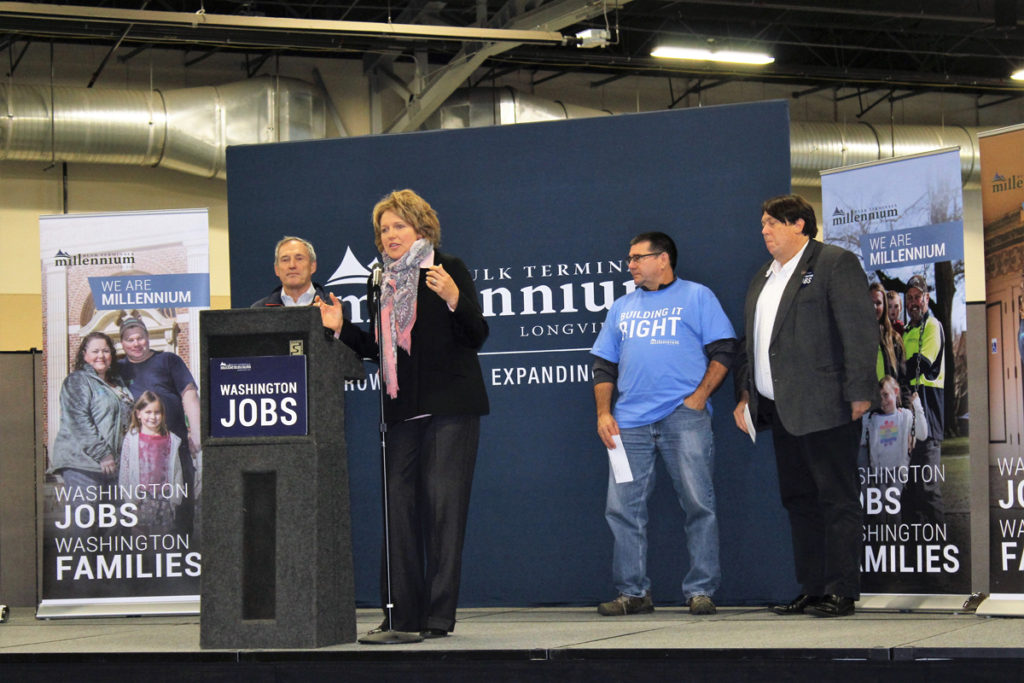
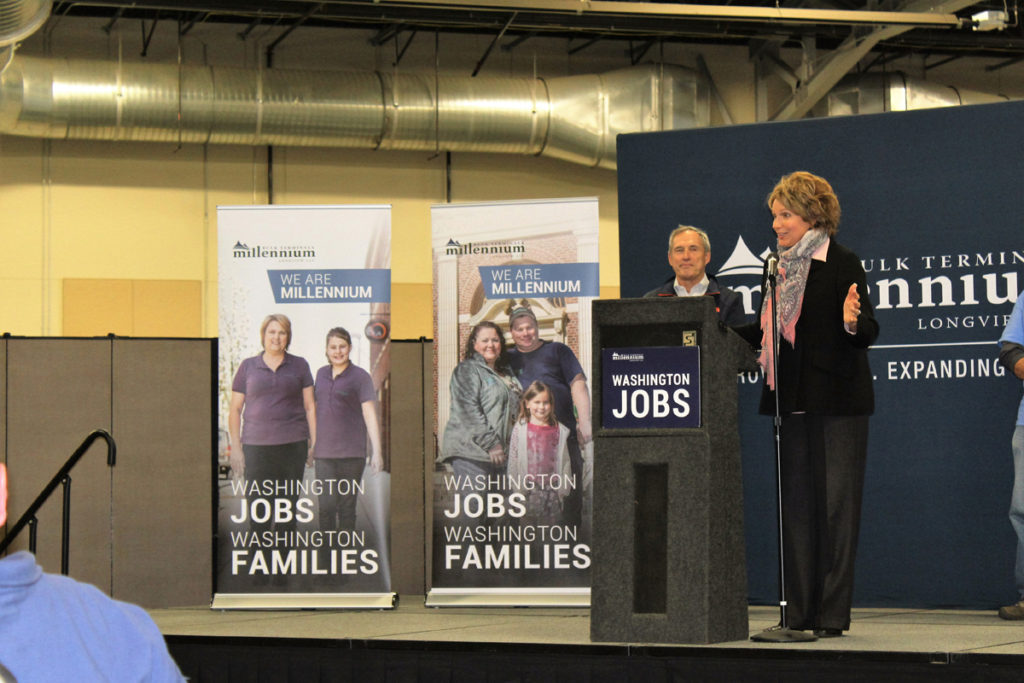
“The company is clear — there are no health issues associated with this (project),” said Millennium’s CEO and president, Bill Chapman. “The EIS and the federal (environmental impact statement) came to the same conclusion. People keep talking about it despite the fact that they’ve been shown it’s not an issue.”
Opponents, however, say the U.S. Army Corps of Engineers’ EIS ignores the impacts of the coal dust and rail traffic on Native American Indian tribes that fish along the Columbia River, upstream of the terminal, as well as the potential health risks to people living in communities along the rail lines, who will be subjected to coal dust, increased pollution from cars waiting for the 16 trains to pass each day and the diesel fumes from the trains themselves. They point to the fact that 62 elected officials, six Native American Indian tribes (including the Cowlitz Indian Tribe, which has a reservation in Clark County), and several cities, including Vancouver, Portland, Seattle and Olympia, have submitted comments to Washington State’s Department of Ecology and to Cowlitz County expressing concerns about the coal export terminal potential to increased health and safety risks.
At the Oct. 25 hearing in Ridgefield, a wildlife biologist who had worked for U.S. Fish and Wildlife for 25 years and studied the effects of environmental toxins on wildlife and fish, said she strongly opposed the coal terminal and testified to the Army Corps that coal ash “contains some of the deadliest metals on Earth and can cause cancer and neurological damage in humans and animals.”

Regna Merritt, a program director for the group Oregon Physicians for Social Responsibility, said she had testified at the Oct. 24 hearing in Longview for a Cowlitz County physician who could not attend the public hearing but who was concerned about his county’s high rates of cancer and asthma.
“He is a cancer doctor who is concerned about the diesel fumes and the coal dust,” Merritt says.
The project’s supporters, however, are not deterred by the number of city councils or tribes who have questioned the coal terminal’s possible health and safety risks. Instead, they point to the Millennium Bulk Terminals’ clean-up of an environmentally toxic industrial site and to the project’s job-creation potential.
Washington State Rep. Liz Pike, who represents Clark County constituents, spoke at the Oct. 25 public hearing and at a rally for the coal terminal’s supporters.
Praising the Millennium project, Pike said local residents should “be applauding” the proposal instead of opposing it.
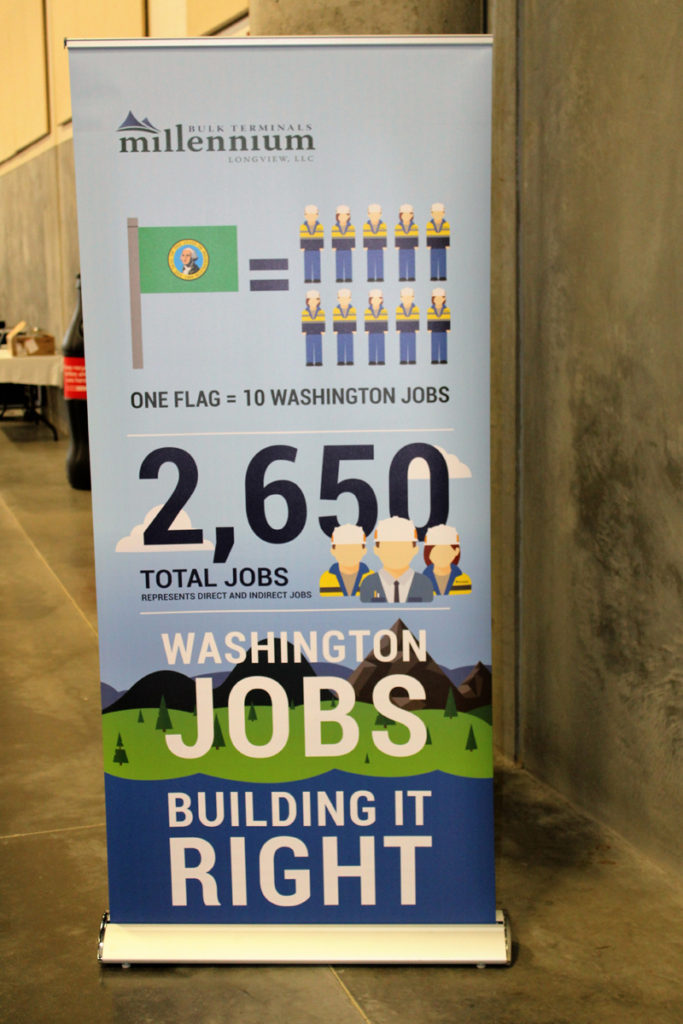
“Unfortunately, there is a war on energy right now and I think we need all forms of energy in our country and in this state,” Pike said, pointing to the project’s ability to bring thousands of short-term jobs and hundreds of long-term jobs to Cowlitz County, an area with a high unemployment rate.
William Myers, of the Columbia Pacific Building Trades Council, which represents more than 17,000 workers in southwest Washington and northwest Oregon, agreed with Rep. Pike.
“The recession was hard on us. Half of our members lost their jobs, some lost their houses … southwest Washington desperately needs these jobs,” Myers said.
Chapman said the Millennium Bulk Terminals would provide 1,350 direct construction type jobs for two years and another 2,650 indirect jobs during its building phase. He added that the project would also create 135 to 300 long-term jobs after its opening.
“This doesn’t just benefit Longview,” Chapman said. “This is going to create economic benefits throughout the entire state … and this is something that should matter to people in Clark County.”
Comments on the Army Corps’ draft environmental statement on the proposed Millennium Bulk Terminals-Longview are being accepted through Nov. 29. To read the statement, click here. To submit a comment on this matter, go online to http://www.millenniumbulkeiswa.gov/submit-comments.html or mail your comment to the following address:
Millennium Bulk Terminals-Longview NEPA EIS
C/O ICF International
710 Second Ave., Suite 550
Seattle, WA 98104




